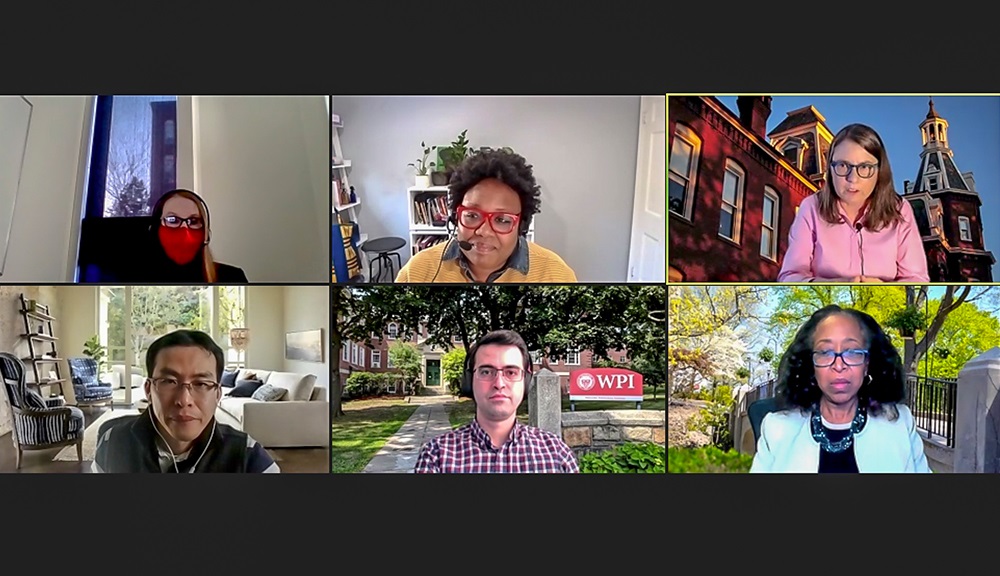Upcoming Q & A with panel of experts to answer student questions about a future in finance
 What does an engineer do on Wall Street?
What does an engineer do on Wall Street?
This question may loom heavily for those WPI students and grads who hope to apply their teachings in the private sector. It is one that will be explored and answered as WPI and the WSPC present the Wall Street Forum on April 25.
“There are as many as 40 of our graduates now working with financial firms,” says longtime professor Art Gerstenfeld, founder and director of the Wall Street Project Center (WSPC). “The entry positions are usually as a business analyst or a member of a risk assessment team. Some have now gone up the ranks and are now vice presidents and managing directors.”
The forum will take the form of a Q & A, with visiting speakers from a variety of financial institutions. Gerstenfeld will act as moderator. “I will ask some tough questions to begin and then turn it over to the students to ask their questions.”
So in addition to the question of what path a WPI grad may find—itself posed by Gerstenfeld—he stresses many others will be explored as well. “In past years, about half the questions related to what makes a good project. Others have been more macro, such as ‘What role does technology play on trading platforms? What is algorithmic trading? What are some future directions for Wall Street? And why do we hear so much about high-speed trading?’ This year there may be some hard questions, such as ‘Why have there been so many huge fines for misdeeds by Wall Street firms?’”
Tending to these deeply practical inquiries will be a panel of five financial professionals, including representatives from two hedge funds and Peter Bartek from Bank of America. “He has worked with our students before and had a very successful project last year,” Gerstenfeld adds.
Also on the panel will be two WPI alums: Barclays VP Greg Friel and Scott Burton, chief technical officer at JP Morgan.
The experience the panel brings exemplifies “Theory and Practice” and should provide various avenues for WPI alums to follow.
While the expertise of the panelists will be illuminating, Gerstenfeld stresses that the 80-some-odd-students that will pack Gateway 2 that afternoon will be running the show.
“Students will get to meet the sponsors of our projects on a one-on-one basis. They will discuss with the sponsors what makes a successful project on Wall Street and what makes a successful career with an investment bank. The future for those students who do projects on Wall Street is limitless.”
While attendance is limited, the WSPC urges that all those in the WPI community—from those who are already involved in financial markets, to those who are just interested and want to learn more—should attend the forum on April 25.
“Students who have already decided this is a direction they want will learn more about what such a career might offer. They may then decide whether they want to do their MQP with one of our investment bank sponsors. It gives us all a rare opportunity to get an inside look into financial market thinking. We know that all large firms use financial markets, but we don’t know how these markets work and what some of the current thinking and future directions are.”
The Wall Street Forum, presented by WPI, Art Gerstenfeld, and the WSPC, will be held at Gateway 2 on Friday, April 25, 1:45–3pm.
For more information, visit http://wallstreet.wpi.edu/.


